 The best way to examine whether emotions give you a reliable internal guidance system is looking at the flip side of emotions.
The best way to examine whether emotions give you a reliable internal guidance system is looking at the flip side of emotions.
In emotional terms, for example, love’s opposite is hate, disgust, being appalled, repelled. But if you look at your emotions, these opposites are right there, right behind the emotion: love… They come together like the front of your hand and the back of your hand. You are in perpetual ambivalence, yoyo-ing back and forth, ups and downs, and incoherence.
Love, the one that vibrates at 525 or so, is not an emotion. Love is a commitment to love.
Love is a commitment to accept another human exactly the way they are and exactly the way they aren’t. Whether they do the right thing, love you back, chew their food with their mouth open, lower back the lid on the toilet, or leave the top off the tooth paste.
Commitment. Not a promise, a commitment.
No ifs, no buts, no conditions.
No action necessary, just acceptance.
No show of love, no giving till it hurts, no nice talk… those are not part of love, they are societal demands.
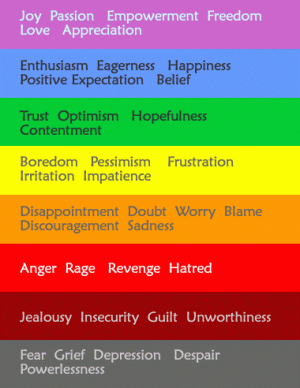 Love does not demand that you give. Doesn’t even demand that you support. Does not demand that you like… It only demands that you have room for what you don’t like. Accept it.
Love does not demand that you give. Doesn’t even demand that you support. Does not demand that you like… It only demands that you have room for what you don’t like. Accept it.
The emotion you call love is anything but a commitment, it is nature’s way to provide for the survival of the species, as best as it can. So the mother doesn’t abandon her child. So the child doesn’t do away with their parents.
 Romantic love is a societal construct to dress up fornication as something loftier than it is: copulation. Once the female gets impregnated, the romantic love disappears: it has served its purpose… leaving the clueless couple dumbfounded: what happened to the love?
Romantic love is a societal construct to dress up fornication as something loftier than it is: copulation. Once the female gets impregnated, the romantic love disappears: it has served its purpose… leaving the clueless couple dumbfounded: what happened to the love?
 Everybody is trying to avoid the unpleasant emotions of fear, anger, anxiety, shame, regret, impatience and such, as if they were the enemy. But the truth is that those emotions are the flip side of the so called positive emotions.
Everybody is trying to avoid the unpleasant emotions of fear, anger, anxiety, shame, regret, impatience and such, as if they were the enemy. But the truth is that those emotions are the flip side of the so called positive emotions.
 When you live your life from emotion to emotion you are like a crazy person being jerked around by an insane firestorm inside.
When you live your life from emotion to emotion you are like a crazy person being jerked around by an insane firestorm inside.
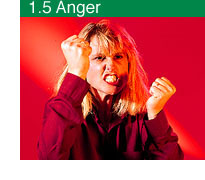 Paying attention to the insane part of you is what renders you imbecile, out of control, low vibration, stupid, ineffective, unpleasant to be with, poor, sick and broke… and act irrationally, rush into things and then pull back, get excited and then procrastinate, and the countless back and forth things you do that make no sense.
Paying attention to the insane part of you is what renders you imbecile, out of control, low vibration, stupid, ineffective, unpleasant to be with, poor, sick and broke… and act irrationally, rush into things and then pull back, get excited and then procrastinate, and the countless back and forth things you do that make no sense.
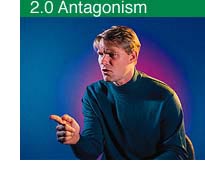 Your emotions are the most unreliable guidance there is, and if you use them to guide you through life, I can be certain that you are miserable, low vibration, and mostly really moronic, no offense, intelligence is measurable, it is not just my opinion.
Your emotions are the most unreliable guidance there is, and if you use them to guide you through life, I can be certain that you are miserable, low vibration, and mostly really moronic, no offense, intelligence is measurable, it is not just my opinion.
Feelings as guidance
I believe in me using my feelings as guidance, but when I say feelings, I don’t mean emotions, not even likes and dislikes.
 I am a mainly kinesthetic person, I feel, touch, move, that is how I learn, that is how I experience the world. Like a dance, like a physical experience. You may be visual, and you experience your world as pictures that you watch. Or you may be auditory and you hear your way through life. Or you are the abstract: you experience life as mathematics, as music… abstract.
I am a mainly kinesthetic person, I feel, touch, move, that is how I learn, that is how I experience the world. Like a dance, like a physical experience. You may be visual, and you experience your world as pictures that you watch. Or you may be auditory and you hear your way through life. Or you are the abstract: you experience life as mathematics, as music… abstract.
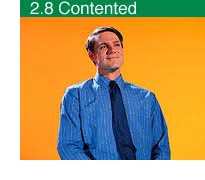 As a kinesthetic person (with secondary auditory), my internal guidance system is mainly feeling my way through life, like a blind person… and secondarily having entire sentences pop into my head, the auditory part, verbal, words, language. Then I muscletest if I am mislead or guided well… while connected to Source.
As a kinesthetic person (with secondary auditory), my internal guidance system is mainly feeling my way through life, like a blind person… and secondarily having entire sentences pop into my head, the auditory part, verbal, words, language. Then I muscletest if I am mislead or guided well… while connected to Source.
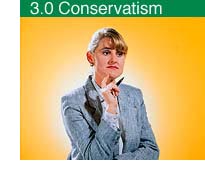 My feelings that I use are not emotional at all. They are physical, like a dance. They are physical like swimming. They are physical like flying.
My feelings that I use are not emotional at all. They are physical, like a dance. They are physical like swimming. They are physical like flying.
…And in the rare instances that my emotions take over, I lose big time, I make big mistakes, and I miss tremendous opportunities.
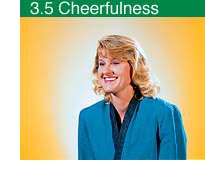 We could also say that a life driven by emotion will be derailed by everything… the certain way to be an underachiever in life, for life.
We could also say that a life driven by emotion will be derailed by everything… the certain way to be an underachiever in life, for life.
When your vibration rises even to just 200, the capacity to bilocate 1 your emotion will become less important to you and you will be able to see the bigger picture, and maybe even make intelligent decisions based on sound logic, sound thought processes.
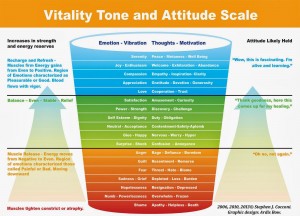 You will be able to see that feeling inadequate, afraid, uncertain, unclear don’t have to stop you and wait for the emotions to change. You will be able to do the things that you fear and see for yourself if you were indeed inadequate. You’ll be surprised… which is yet another emotion.
You will be able to see that feeling inadequate, afraid, uncertain, unclear don’t have to stop you and wait for the emotions to change. You will be able to do the things that you fear and see for yourself if you were indeed inadequate. You’ll be surprised… which is yet another emotion.
That will be the day!
And as always, follow the path that takes you to a vibration of 200, get the harmonize, and the liquid remedies
PS: As I was looking for suitable images for this post, I found that most every teacher looks at emotions as if they were a valid indicator of a person’s consciousness, a person’s vibration. 2
But it is not a valid indicator. We all, on every level of vibration, have the full range of emotions. The difference between people of different level of vibration, of different levels of consciousness, is this:
- are you stuck in any of those emotional states?
- are you using the emotional state as a guidance for your actions or inaction?
- do you spend time figuring out why you feel the way you feel?
The more of the time the answer to these questions is “yes”, the lower your vibration, the lower your consciousness.
For example, if your vibration is 150, you spend 94% of your time in one or more of those three states above…
The goal is to observe, witness the emotions with mild curiosity, mild amusement, while you are doing what you need to do, what you are committed to doing in your life.
PPS: to confuse humans, some emotional states have the same names as the capacity: like contentment… it is both an emotion and a capacity. There is a big difference. If you consider it an emotion, it will make you want to maintain it, and do nothing to rock the boat. If you consider it a capacity, you can bring it about in any state it is going to balance what’s going on and what your expectation was: i.e. in moments of possible disappointment…
Being able to be (not feel!) content when things didn’t turn out is a high capacity, most haven’t activated.
- not identify yourself with your thoughts or with your emotions, instead identify yourself as the Observer or Witness
- the Abraham/Hicks emotional guidance system, Scientology’s tone of scale. Scientology says:
Every person has a chronic or habitual tone. He or she moves up or down the Tone Scale as he experiences success or failure. These are temporary, or acute, tone levels. A primary goal of Scientology is to raise a person’s chronic position on the Tone Scale
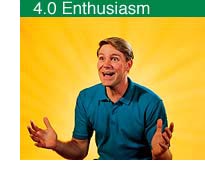 Scientologists believe it intends to classify people in a range or scale according to how spiritually alive and how dead a person is, both personally and in their relationships to others. It prescribes auditing procedures to use with a person depending where they are on the scale.
Scientologists believe it intends to classify people in a range or scale according to how spiritually alive and how dead a person is, both personally and in their relationships to others. It prescribes auditing procedures to use with a person depending where they are on the scale.Here is the tone of scale from Scientology:
The tone scale is as follows:[1]
40.0 Serenity of beingness
30.0 Postulates
22.0 Games
20.0 Action
8.0 Exhilaration
6.0 Aesthetic
4.0 Enthusiasm
3.5 Cheerfulness
3.3 Strong interest
3.0 Conservatism
2.9 Mild interest
2.8 Contented
2.6 Disinterested
2.5 Boredom
2.4 Monotony
2.0 Antagonism
1.9 Hostility
1.8 Pain
1.5 Anger
1.4 Hate
1.3 Resentment
1.2 No sympathy
1.15 Unexpressed resentment
1.1 Covert hostility
1.02 Anxiety
1.0 Fear
0.98 Despair
0.96 Terror
0.94 Numb
0.9 Sympathy
0.8 Propitiation
0.5 Grief
0.375 Making amends
0.3 Undeserving
0.2 Self-abasement
0.1 Victim
0.07 Hopeless
0.05 Apathy
0.03 Useless
0.01 Dying
0.0 Body death
– 0.01 Failure
– 0.1 Pity
– 0.2 Shame
– 0.7 Accountable
– 1.0 Blame
– 1.3 Regret
– 1.5 Controlling bodies
– 2.2 Protecting bodies
– 3.0 Owning bodies
– 3.5 Approval from bodies
– 4.0 Needing bodies
– 5.0 Worshipping bodies
– 6.0 Sacrifice
– 8.0 Hiding
-10.0 Being objects
-20.0 Being nothing
-30.0 Can’t hide
-40.0 Total failure
